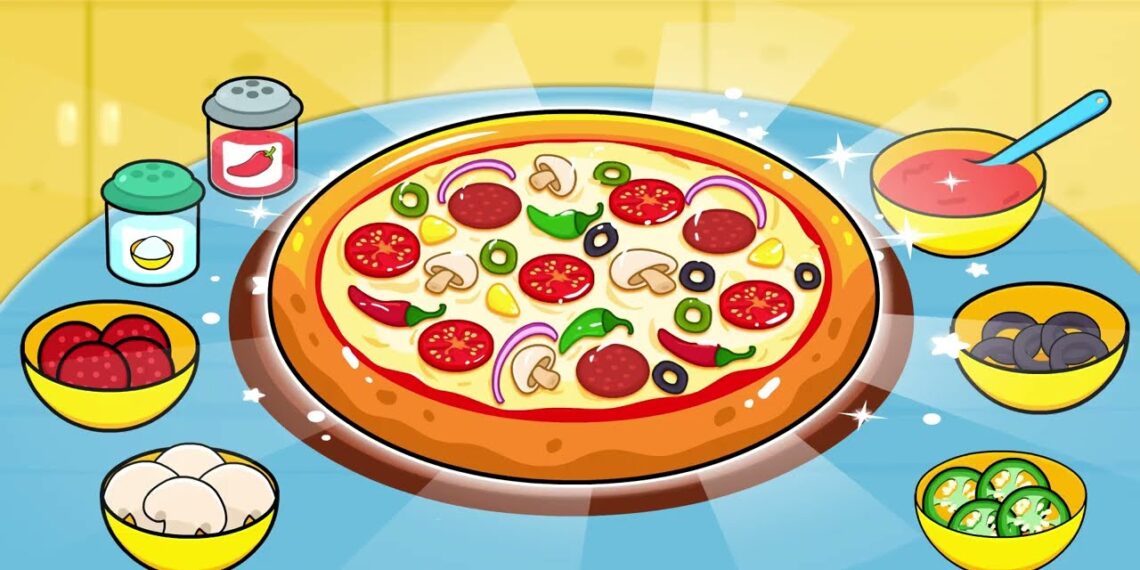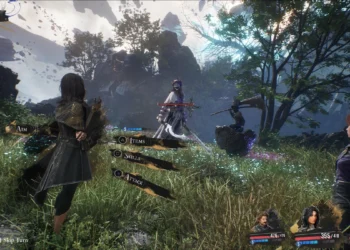In the world of open-source development, creativity often appears in unexpected forms. One such example is the Pizza Edition GitHub project — a playful yet surprisingly educational initiative that combines the worlds of coding, collaboration, and humor. At first glance, it might seem like just another quirky side project. But when you look deeper, the Pizza Edition movement reveals a thoughtful approach to community learning, innovation, and the lighter side of tech culture.
This article explores what the Pizza Edition GitHub project is all about, how it started, what makes it special, and why it’s become a fascinating part of open-source culture.
What Is the Pizza Edition GitHub Project?
The Pizza Edition GitHub project represents a collection of repositories and ideas united by a shared theme — pizza. It’s not one single project but rather a playful movement in which developers reimagine apps, games, and experiments through the lens of pizza. From “pizza-themed games” to “pizza ordering simulations,” these projects embody the spirit of open collaboration with a touch of humor.
The concept behind Pizza Edition is simple: use a relatable, universal theme to make coding more accessible and fun. Instead of tackling a serious enterprise project, developers explore creative experimentation. It’s an invitation for programmers to relax, learn, and engage with code in a way that feels enjoyable rather than intimidating.
The result is a mix of creativity and skill — a demonstration that even whimsical projects can hold technical depth, encourage learning, and inspire collaboration
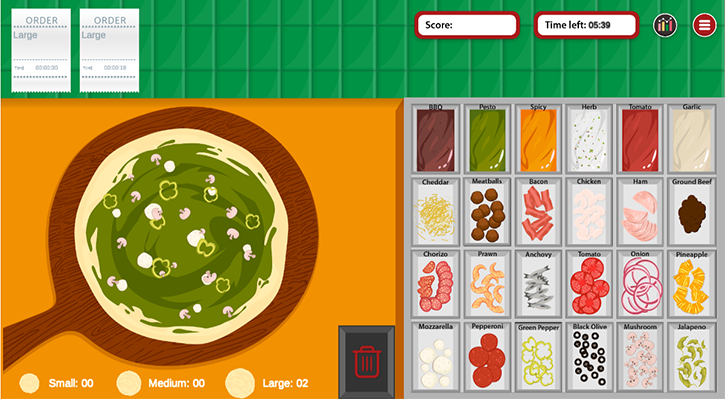
The Concept Behind Pizza Edition
Pizza has become a metaphor for inclusivity and creativity in tech. Everyone loves pizza, and everyone can take part in a Pizza Edition project. The idea is to blend the universal appeal of pizza with the universality of open-source software.
These projects often start with a single developer creating something small and funny — perhaps a “Pizza Edition” version of an app or a website — and publishing it on GitHub. Others see it, smile, and decide to contribute. Before long, what began as a lighthearted idea grows into a community-driven development effort.
At its heart, the Pizza Edition GitHub concept celebrates freedom: freedom to experiment, make mistakes, learn, and have fun. It removes the pressure of perfection that many developers feel in their professional work. In this sense, Pizza Edition isn’t just about code; it’s about culture, collaboration, and creativity.
Inside the GitHub Repository
When exploring a Pizza Edition repository on GitHub, you’ll find all the usual elements of an open-source project: a README file, structured code folders, assets, and documentation. But there’s also a playful touch — sections like “Dough Preparation” or “Topping Selection” that serve as metaphors for foundational setup and customization steps.
This creative presentation not only makes the project engaging but also helps new developers understand the structure of a GitHub repository in a more approachable way. Many Pizza Edition repositories are intentionally beginner-friendly, using humor and simplicity to make learning version control and collaborative development easier.
The most important takeaway is that these repositories still follow best coding practices. Underneath the fun names and playful tone, you’ll often find real, well-organized code — from front-end logic to APIs, frameworks, and build pipelines.
Features That Make It Stand Out
The Pizza Edition GitHub project stands out not because it reinvents programming but because it reimagines how developers interact with it. Here’s what makes it special:
1. Thematic Creativity
The pizza concept ties everything together. Instead of dull folder names and documentation, you’ll find imaginative metaphors that make learning fun. Developers can laugh while coding, and that keeps creativity alive.
2. Accessibility for Beginners
Many Pizza Edition projects are deliberately structured to welcome beginners. The code is often modular and well-commented, making it easier to understand. The casual tone invites people to experiment without fear of judgment.
3. Community Collaboration
These projects thrive on contributions. Developers from around the world join in, add new “toppings” (features), fix “crust” issues (bugs), and improve performance. The tone is supportive rather than competitive — a reflection of the true open-source spirit.
4. Real Coding Skills Behind the Fun
Despite its humor, the project often demonstrates serious programming fundamentals. You’ll see practical examples of modular design, responsive layouts, clean documentation, and efficient workflows.
5. A Positive Coding Culture
Pizza Edition promotes joy in programming. It encourages collaboration and inclusivity in a space that can sometimes feel overly technical. It’s a reminder that great ideas often start with curiosity, laughter, and community.
The Developer Community
One of the most impressive things about the Pizza Edition GitHub initiative is the community surrounding it. The movement has inspired developers, designers, and students to come together over a shared sense of creativity.
In many cases, the repositories have active discussions, pull requests, and forks — not for commercial reasons, but for fun and learning. Developers share feedback, suggest new toppings or features, and even collaborate on entirely new “flavors” of the original idea.
The community dynamic reflects the best of open source: collaboration without ego. It allows new contributors to gain confidence while working alongside experienced programmers. It’s an environment where mistakes are welcome because they lead to learning — much like experimenting in a kitchen.
Lessons Developers Can Learn
Beyond entertainment, the Pizza Edition GitHub trend offers real lessons for developers of all levels:
- Make coding enjoyable. Fun projects reduce burnout and keep motivation high.
- Design with modularity. Just as pizzas have layers, modular code can be built, customized, and improved easily.
- Encourage collaboration. When projects are open, inclusive, and welcoming, they attract diverse talent and ideas.
- Focus on learning, not perfection. The Pizza Edition mindset reminds us that the process of coding — experimenting, failing, and improving — is more valuable than flawless execution.
- Bring personality into your work. Code doesn’t have to be cold. Adding humor or creativity can build stronger teams and communities.
These lessons apply beyond any single repository. They reflect the future of software development — one where culture and collaboration matter as much as technical ability.
How to Explore or Contribute
If you’re inspired to dive into a Pizza Edition GitHub project, getting started is easy.
- Search for “Pizza Edition” repositories on GitHub. There are multiple versions across languages and frameworks.
- Read the README file carefully. It explains the project’s concept, setup instructions, and contribution guidelines.
- Clone the repository and explore locally. Test features, modify the design, or build your own variation.
- Look at the open issues. Many are beginner-friendly and designed for practice.
- Fork the project and contribute your own “topping.” Whether you fix a bug, add documentation, or improve visuals, every contribution helps.
- Stay true to open-source ethics. Respect licenses, give credit, and keep communication positive.
The beauty of this process is that anyone can participate — from first-time coders to experienced developers looking to unwind and have fun.
Why It Matters
In today’s fast-paced tech world, developers often feel pressured to focus solely on productivity, performance, and deadlines. The Pizza Edition GitHub movement reminds us that creativity and joy are just as essential.
It demonstrates that programming can be playful without losing its value. Many people discover coding through projects like this — not because they’re profitable, but because they’re inspiring. The concept celebrates the idea that innovation often begins with curiosity and humor.
By making code more approachable, Pizza Edition encourages inclusivity. It shows that open source isn’t just about solving technical problems; it’s about sharing experiences, building connections, and celebrating creativity together.
Conclusion
The Pizza Edition GitHub project is more than a funny name. It’s a movement that redefines what it means to code collaboratively. By combining humor, design, and genuine technical skill, it turns open source into a space where people can learn, grow, and enjoy the process.
In a field that often prizes complexity, Pizza Edition reminds us that simplicity can be powerful. It proves that code can be educational and entertaining, serious and silly, structured and spontaneous — all at once.
Whether you’re a developer, designer, or someone curious about how creativity fits into technology, exploring a Pizza Edition repository will give you a refreshing perspective. It’s proof that the best ideas in programming don’t always start with business plans — sometimes, they start with pizza. 🍕
Also read :Riddle School Walkthrough: How to Solve Every Puzzle Step by Step
